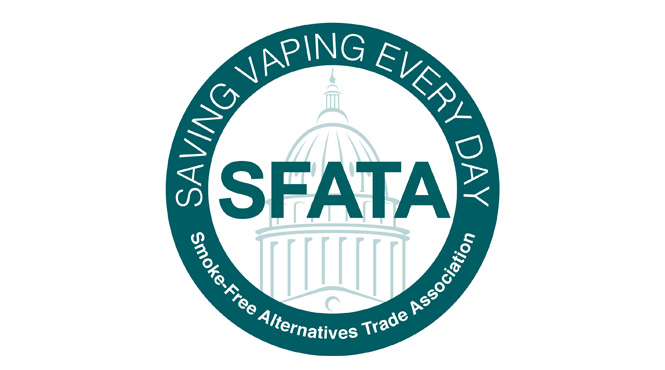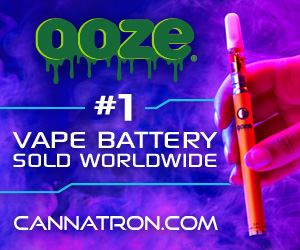So You've Been Declared a "Non-Essential Business" - What Now?

Mar, 2019 by Cannabiz Wholesaler
March 26, 2020
On Friday, March 19, 2020, California Governor Gavin Newsom issued the nation’s first statewide Shelter-in-Place Executive Order which limited business operations, restricted travel, and disrupted the lives of millions of healthy citizens.
Since then, a number of other states have issued similar Executive Orders, calling for the closures of all non-essential businesses, including Connecticut, Delaware, Georgia, Hawaii, Illinois, Indiana, Kentucky, Louisiana, Maryland, Massachusetts, Michigan, Navajo Nation, New Jersey, New Mexico, New York, Ohio, Oregon, Pennsylvania, Texas, Vermont, West Virginia, Wisconsin, and Washington.
In addition to these states, some densely populated counties and cities have issued their own orders, such as Atlanta, Charleston, Charlotte-Mecklenburg, Denver, Durham, Knox County, TN, Miami, New York City, Orange County, FL, Philadelphia, and most recently, Dallas, TX.
While every order is unique, each order poses the same practical question for you, our members:
Can my business stay open?
Unfortunately, there is no clear-cut answer, because it depends on the specific language of the order.
Most of the orders currently in place simply list the types of businesses that are exempt. Common businesses exempted from the order as “essential” include state and local government agencies, law enforcement, grocery stores, hospitals, waste management, banks, transportation, public works and utilities, news media, and essential manufacturing. Several states have included liquor stores, gas stations, convenience stores, and marijuana dispensaries.
Regardless of which are listed as essential in your state, city, or county, if you are wanting to remain open, you need to read the language thoroughly and determine if you fit into any of the outlined exemptions.
If you do not, review the language to determine if a particular agency has been granted the authority to determine who else might be added to that list. If your state has such a mechanism in place, we advise that you use some of the reasons bulleted below to help draft your submission.
As your Board President, I was one of the first to receive an exemption from the state of Connecticut after successfully demonstrating that my business is essential to public health, and is possibly the first vapor shop to obtain such an exemption in the state, paving the road for others.
I did this with the assistance of our Executive Director, Mark Anton, who helped to compose a letter that can be customized for SFATA members in other states, bringing up very specific points -- the most important being that reasoning should be based on public health benefit and the detriment to public health, absent your business.
I urge that you NOT address lost staff wages or income. The entire country is at home, and many are out of work. And while there is some sympathy there – it is not a valid reason to be dubbed essential to the community.
Each situation will vary by order and by location. Below are a few examples of different mechanisms that allow member shops to remain open. It is this type of language you will look for in your state when an order is issued:
Connecticut Executive Order 7H “WHEREAS, my Executive Order No. 7H, dated March 20, 2020, limited the workplace operations of non-essential businesses, and on-profit, created a process to designate those that are essential…”
It was then up to business owners in the state to find out which agency was granted this authority and what that process was. In Connecticut, the process was by submittal of an online exemption request stating the reason for your request and the nature of your business. Once granted, exempt businesses are considered essential and can operate as such.
However, all retail businesses in Connecticut can operate under the following language: ”non-essential retailers may be staffed on-site, provided that they may only offer remote ordering (e.g. phone, internet, mail, dropbox) and curb-side pick-up or delivery…”
New Jersey Executive Order 107 In New Jersey, no such mechanism for exemption application exists; however, our members in that state can service patrons under the following language:
“All retail businesses not considered “essential” must close. If your business is a retail business that operates with a physical storefront, you must close your business to the public. Delivery and online operations may continue.”
This is not ideal, particularly with combustible tobacco retailers open across the state and stress at such high levels, but at least your store won't be completely closed.
Pennsylvania Executive Order In Pennsylvania, like with Connecticut, a mechanism exists to become designated as an essential business. Also, as with Connecticut, the authority lies with the Department of Community & Economic Development.
The language of the Pennsylvania Order reads:
“Section 1: Prohibition on Operation of Businesses that are not Life Sustaining
All prior orders and guidance regarding business closures are hereby superseded. No person or entity shall operate a place of business in the Commonwealth that is not a life sustaining business regardless of whether the business is open to members of the public. This prohibition does not apply to virtual or telework operations (e.g., work from home), so long as social distancing and other mitigation measures are followed in such operations. Life sustaining businesses may remain open, but they must follow, at a minimum, the social distancing practices and other mitigation measures defined by the Centers for Disease Control to protect workers and patrons.”
Now that you have a basic understanding of the variances in these orders, we hope you understand why we are saying that the answer to, "Can my business stay open?" isn't an easy answer.
If you can file for a waiver as an essential business, it is important that you include points that demonstrate why your business is essential to the community. Some examples of reasoning that have worked are:
• In states where gas stations, convenience stores, supermarkets, and pharmacies are classified as essential, point out that each of these retailers sells combustible tobacco but does not offer open/refillable vapor products.
• Briefly explain the demographics of your client-base – do they pay by credit card or cash? If by cash, do they have credit cards or PayPal accounts in order to shop online effectively?
• Point out potential threats to public health should you be forced to close. (ie. If gas stations and convenience stores are the only ones left with in-person sales of vapor products, youth uptake will rise – use FDA compliance data to back up statements).
• With the non-essential workforce at home and numbers of the workforce currently unemployed, usage of nicotine products will climb, due to financial and situational stress. People vape and smoke more when they are anxious or worried. Middle- and lower-income classes cannot afford to stock up on supplies and will need a safe place to purchase replenishments more frequently.
• Explain that Electronic Nicotine Delivery Systems are, by their nature, electronic and often require troubleshooting. This requires face-to-face interaction and is clumsy, at best, by phone due to the number of variables between systems.
• Point out the various aspects of your business. This includes CBD, wholesale, and other goods you carry, explaining why operations aren’t feasible to perform remotely or how supply-chain issues may arise if you supply other retailers.
• Detail steps you have taken and will take to protect your staff and patrons to reduce the spread of COVID-19 if you get the waiver, assuring them you take the threat seriously.
These are just some examples of the kinds of information you should be providing. Each Executive Order and business are unique. We are here to assist you and will do our best to help you keep your patrons tobacco-free during this time of stress and upheaval. If we can help, please reach out to memberservices@sfata.org. Mandi Tory will then field your request to the appropriate person on our team. We will do our best to get to you as soon as possible.
Wishing you all sanity and health,
April L. Meyers
SFATA Board President & CEO
Mark Anton
SFATA Executive Director





















